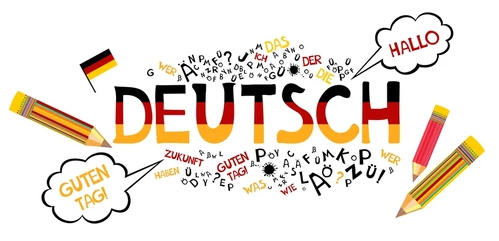Germany is a fascinating country with a rich culture and history. The Germany National Language is one of the most prominent feature of German culture. In this article, we will delve into the details of Germany's national language, German. We will explore the history of the language, its characteristics, and its status in the world today.
History of the Germany National Language
The German language has a long and rich history that dates back to the early Middle Ages. It evolved from the West Germanic branch of the Germanic languages and was influenced by various other languages, including Latin, Greek, and Slavic. The written form of German has been in use since the 8th century when the Old High German language was first written down. Over time, the language evolved and developed into Middle High German, which was used during the 11th to 14th centuries.
In the 16th century, the Luther Bible was published in German, and this helped to establish the language as a literary language. Modern High German, which is the form of German used today, emerged in the 17th and 18th centuries.
Characteristics of the Germany National Language
The German language is a member of the West Germanic group of the Germanic languages, which also includes English and Dutch. It is known for its complex grammar, which includes four cases and three genders for nouns. German also has a unique sound system that includes some sounds that are not found in English, such as the umlaut vowels.
German is also known for its long compound words, which can be formed by combining multiple words together to create a new word. For example, the word "Donaudampfschifffahrtsgesellschaftskapitän" means "Danube steamship company captain."
Status of the Germany National Language Today
German is the most widely spoken language in the European Union and is spoken by over 100 million people worldwide. It is an official language in Germany, Austria, Switzerland, and Liechtenstein.
German is also a popular second language, and many people choose to learn it for various reasons, such as for business or academic purposes. In fact, German is the second most commonly used scientific language after English.
Importance of German Language in Germany
The German language is deeply embedded in German culture and is an essential part of the country's identity. It is the language of literature, music, and philosophy and has a rich history of cultural achievements.
In addition, proficiency in German is necessary for anyone who wants to study or work in Germany. Many universities and businesses require applicants to have a certain level of German proficiency, and knowing German can open up many opportunities in the country.
FAQs
- Is German a difficult language to learn?
German can be challenging to learn due to its complex grammar and unique sound system. However, with dedication and practice, anyone can become proficient in the language.
- How similar is German to English?
German and English are both members of the Germanic language family and share many similarities, such as vocabulary and grammar. However, there are also significant differences between the two languages.
- Do people in Germany speak English?
Many Germans speak English, especially younger generations who have learned it in school. However, it is still important to have some knowledge of German, especially when traveling outside of major cities.
- Are there any dialects of German?
Yes, there are many dialects of German, which can vary significantly in vocabulary, grammar, and pronunciation.
- Is German only spoken in Germany?
No, German is also spoken in Austria, Switzerland, and Liechtenstein, as well.
References
- "German language." Encyclopædia Britannica. https://www.britannica.com/topic/German-language
- "German language." Wikipedia. https://en.wikipedia.org/wiki/German_language
- "10 Fun Facts About the German Language." Babbel Magazine. https://www.babbel.com/en/magazine/10-fun-facts-about-the-german-language
